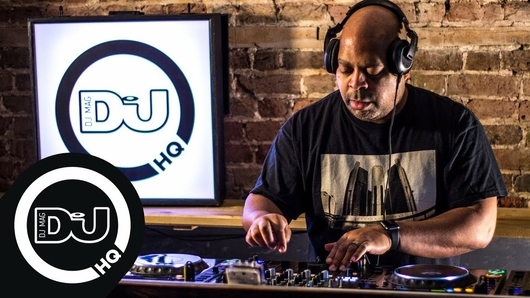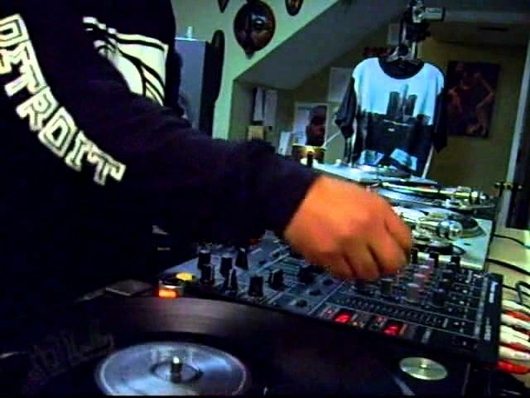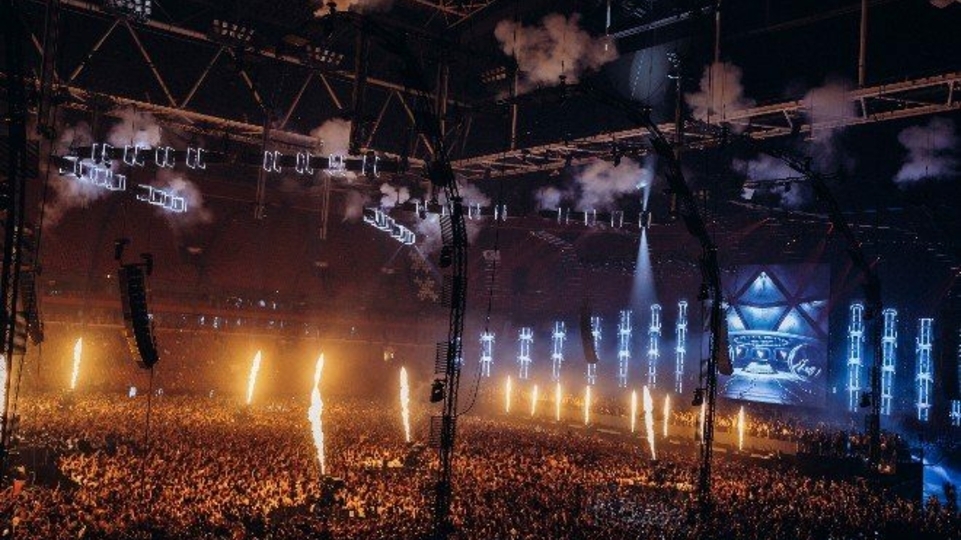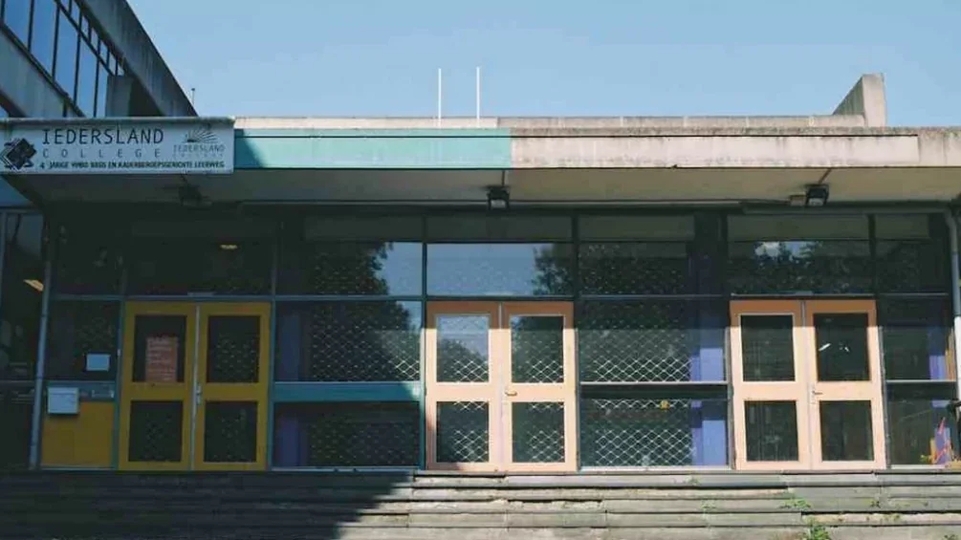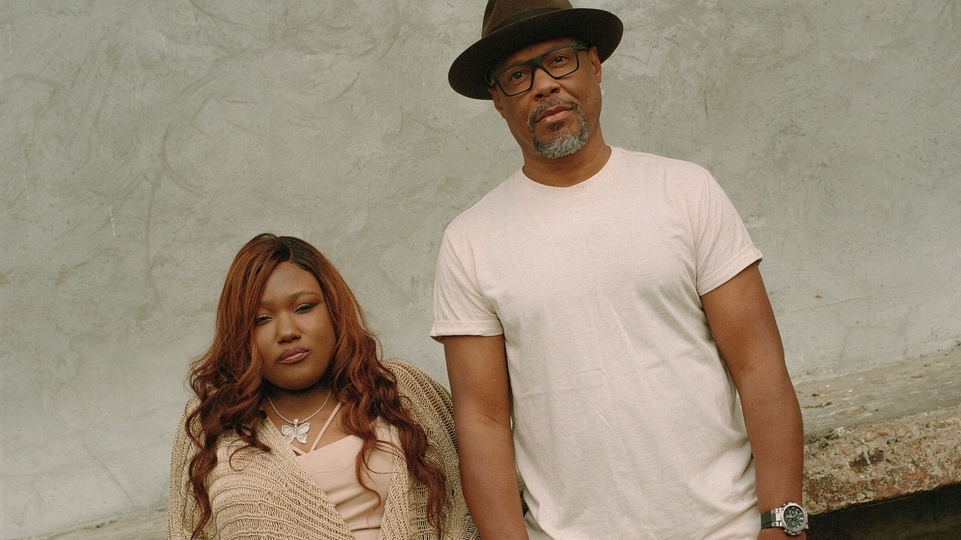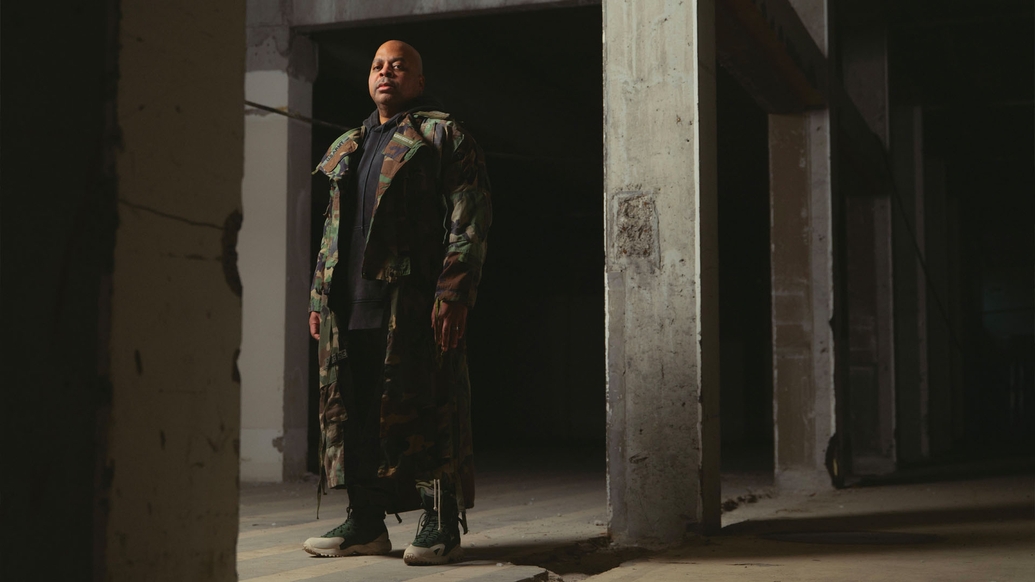
DJ Bone: going FURTHER
From underground Detroit hero to flourishing international headliner, DJ Bone has worked hard to get where he is today. He meets Joe Roberts in Amsterdam to talk about his innovative FURTHER party series, his homelessness charity, repping the Motor City overseas and keeping the funk in techno
“They always say the first wave of Detroit, the second wave, the third,” says DJ Bone, aka 52-year-old Eric Dulan, as we sit chatting about techno. “Whenever they mention my name though, nobody knows where to put me. It’s a compliment, because I was never associated with a clique or group. That’s what’s carried me into this realm I’m in now.”
Plugged into the Detroit underground since The Electrifying Mojo was blowing minds over the airways and Jeff Mills was known as The Wizard, DJ Bone has travelled from a respected local DJ to an international headliner repping techno’s funky, soulful origins. As a producer, he’s evolved into a multifaceted artist, founding Subject Detroit in 1995 to put out politically-charged techno aimed at feet, hearts and minds. Alongside wife and manager Ahnne, he runs Homeless Homies, a charity feeding some of their success back into the communities they’ve been part of. And most recently he’s started FURTHER, a series of lockdown musical sessions and talks that have developed into a party series at Radion in Amsterdam, the city he’s called home for the last seven years.
Along the way he’s rubbed shoulders with everyone from Carl Cox and Laurent Garnier to Mad Mike and Kenny Dixon, telling us one day he might put his stories into a book or film. Today though, we’re here for his tale, a remarkable journey of grit, vision and persistence that’s still reaching new heights as he embarks on a new chapter. Meeting us at the airport, he’s dressed in a long coat over an Adidas top and trousers, a nod to a parallel love of hip-hop. His chunky-soled boots look like traditional warehouse techno garb, although it later transpires they’re Gucci — a how it started/how it’s going meme collapsed into a pair of footwear.
Bone himself occupies a unique position. He’s infused with an old school attitude that goes back to techno’s birth. He began DJing in his teens, playing the original warehouse parties that sprung up across the city. His origins are spinning vinyl on three decks (and still an avid record collector); he’s embraced digital but maintains a pride at having served his apprenticeship the hard way. “It’s pretty cool that Pioneer came out with a mixer that does what the Detroit DJs have been doing for 12 years,” he recalls, of when the first DJM arrived with effects, Bone having already recreated flanging by playing two copies of the same record. It’s an attitude baked into everything he does, telling us a new track is called ‘Microwave Society’, “because everything is fast. I’m not saying that people have to struggle, but I think struggle breeds creativity.”
Rather than become the proverbial ‘old man yells at clouds’ though, this restless spirit and work ethic has carried him into the modern era. Homeless Homies was founded in 2002, decades before the trend of the charity Bandcamp comp, and FURTHER arose out of an innovative drive to serve Amsterdam’s club-deprived music fans. Even his own Instagram occasionally delves into the intimate moments demanded of modern DJs, his Christmas message accompanied by photos of him and Ahnne opening what look like ‘Mr Bone’ and ‘Mrs Bone’ towels or dressing gowns.
On first name terms with everyone from our driver, who Bone regularly uses, to the staff at the Apollo Hotel, the venue where we talk and FURTHER’s guests all stay, Amsterdam is a home away from home. “There was always a connection on a music level, with labels like Djax Up Beats and Wonka, and all these Dutch producers making tribally techno,” he explains of the long connection between Detroit and Amsterdam as we drive from the airport, tracing a line from producers and DJs such as Orlando Voorn, Steve Rachmad and Dimitri through to the Rush Hour crew. Later on he praises Joris Voorn, whose current output he says doesn’t reflect what he started out making. “It was so Detroit. It was moody, but it still had pace. It moved around, so even though it was four-four, it still had enough side to side motion and swing. Joris was making heat. Then he just decided that he was going to turn a corner.”
Bone’s career has instead been characterised by holding a steady course and getting closer to some essential essence, even as he’s moved away from Detroit — relocating to Los Angeles in 2002 after meeting Ahnne, then on to Louisville, Kentucky in 2004 to be near his mom and sister (still maintaining homes in all three US cities), before arriving in Amsterdam to make his touring schedule more bearable. His career is the ultimate slow-burn, we suggest, at odds with the meteoric rises of many born into the digital media age. “I like that, I’m going to get SLOW BURN put on a T-shirt,” he chuckles, as we settle down to talk.
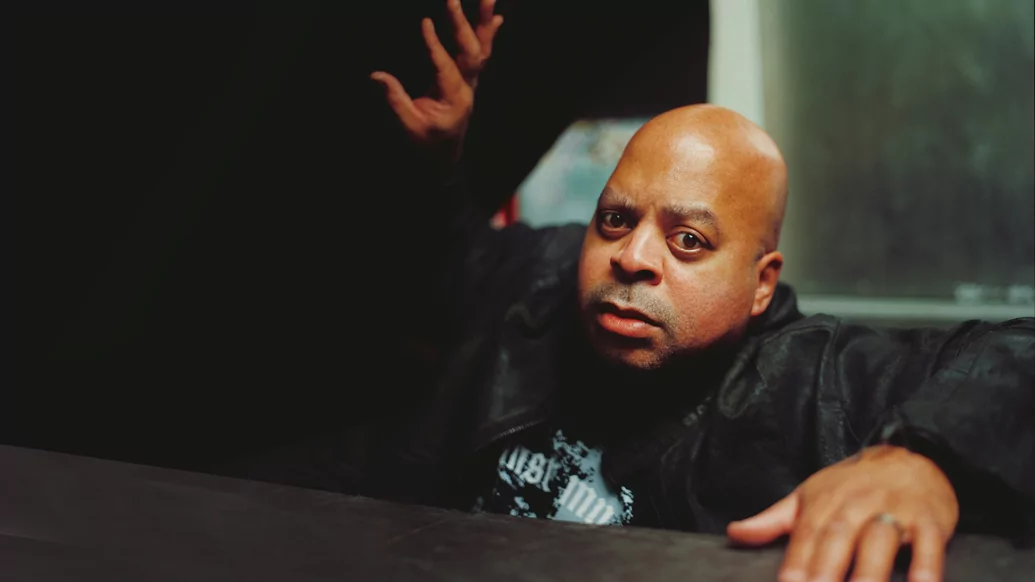
Conversation with Bone is similarly thorough, with Eric giving well-considered opinions and covering topics such as the Dutch American Friendship Treaty (whose acronym, he points out, is literally DAFT), why you’ve heard of LA gangs the Crips and Bloods, but probably not Detroit’s The Black Mafia Family, and what made him respectfully turn down an offer to join Underground Resistance, despite Mad Mike being a musical hero. “I felt I had established myself alone on a certain level,” he tells us. “If I’d gone under the UR umbrella, from that point on it would have been on every flyer. Would it overshadow all my previous work?”
With FURTHER he now has his own umbrella, carrying forward a conceptual theme started by his last two albums on Subject Detroit, 2018’s ‘Beyond’ and ‘A Piece Of Beyond’. Lockdown hit just as he and Ahnne had moved into their own piece of beyond, a house 20 minutes outside of Amsterdam that was one of the last painted by Mondrian before he entered his Cubist period. An attraction for tourists during the summer, it’s mostly surrounded by farms and fields so, “was just perfect for lockdown,” Eric says. “We got to not travel for two years, two-and-a-half years, and enjoy each other and just hang out and cook and have fun and do our garden.” The Netherlands’ harsh lockdown restrictions at the time included curfews, hitting nightlife particularly hard. “You couldn’t be out between the hours of I think 10 at night and six in the morning. It was horrible, very repressive.”
FURTHER started from his desire to get back “to listening to loud music”, bringing nightlife into the daytime via physically distanced sit down events. Revolving around him picking a subject, such as Detroit techno, Chicago house or electro, he’d select 15 to 18 tracks and get visuals made. “You’ve got 75 people sat on couches and beanbags,” he says, setting the scene. “It’s in the main room, so the soundsystem and lighting are amazing. I would play the songs and I would talk about what the song means to me or to Detroit. So it’s like a lecture for the first part, then I would do a mix according to the topic with graphics going on behind me the whole time.”
He felt like “a professor”, a recording on SoundCloud of the first event back in June 2020, ‘A Journey Through Detroit Techno’, capturing him observing, “Some of you probably weren’t even born in ’97”, as he plays Drexciya’s ‘Vampire Island’, released that year. It’s a reminder of how timeless Detroit’s early output is, Bone peppering in stories of its creators as he plays tracks from the likes of Galaxy 2 Galaxy and Kenny Larkin. Repping this lineage has become even more important now clubs are back in full swing.
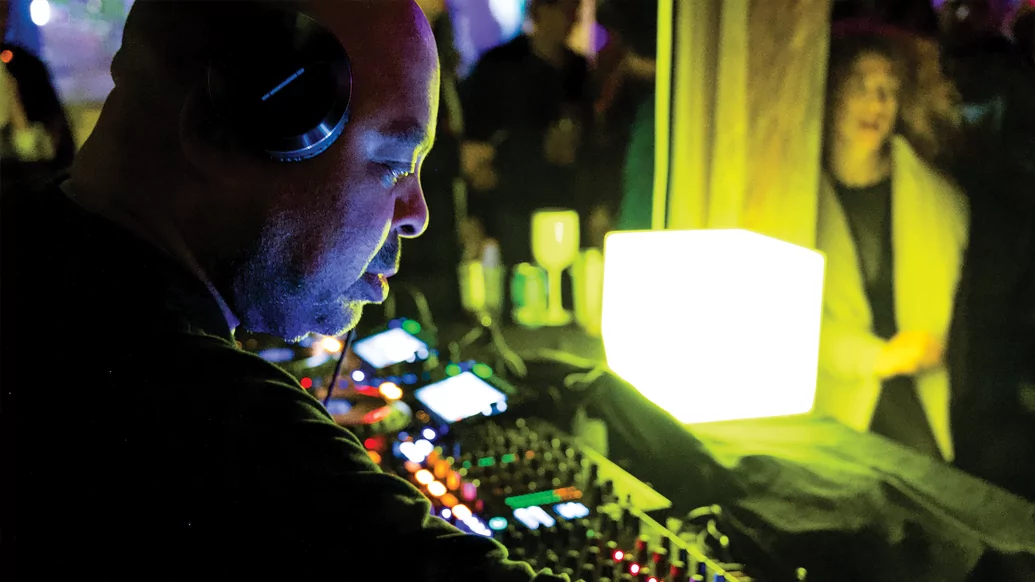
“You don’t have to be aggressive to be expressive... That’s why when I created music: it was always a feeling. I was in awe of the emotion of situations.”
“We called it ‘devil techno’!” Eric jokes of when he and Ahnne first started hearing the new wave of 150bpm+ industrial techno that’s swept to the fore since Covid helped reconfigure clubland. Attempting to understand it, he reasoned it was the sound of angst, a new generation, some of whom were only 16 or 17 when lockdown started, rushing into excess fuelled by understandable “pent up aggression, anger and frustration”. Many of the previous generation, meanwhile, what he calls the “rave moms and rave dads” had got married, had kids or simply changed career, meaning “these new people came in with no guide”.
You could argue this is what youth has always done, creating its own sound and subculture impenetrable to their parents. But given techno’s original roots in Detroit’s post-industrial decay, his take is “you don’t have to be aggressive to be expressive”. Take the kick-drum out of this or business techno, he points out, and what would you be left with?
“It would just be bleeps and bloops and build-ups to nothing. There’s no swing, no rhythm, no soul, no bassline.” It’s these that define what Bone refers to as “the vibe”, and Detroit has been steeped in it since the chart-topping days of Motown. “When I hear ‘What’s Going On’ from Marvin Gaye, I hear the protest, I don’t hear a funky-ass song,” he tells us about the famous anti-Vietnam War track, an exemplar of what he’s talking about. “But it happens to be funky and amazing.”
“That’s why when I created music,” he continues, “it was always a feeling. I was in awe of the emotion of situations. When I grew up, the music I listened to was that. When Mojo was on a radio in Detroit, it was that,” he says of the influential Detroit DJ’s seminal show that ran from the late ’70s through the ’80s. He credits Mojo with inspiring his wide-ranging listening taste, citing seminal acts such as Parliament, Prince and Stevie Wonder, then later on Devo, Rick James, Depeche Mode, The J. Geils Band and the B52’s, who he’d hear alongside early Detroit techno.
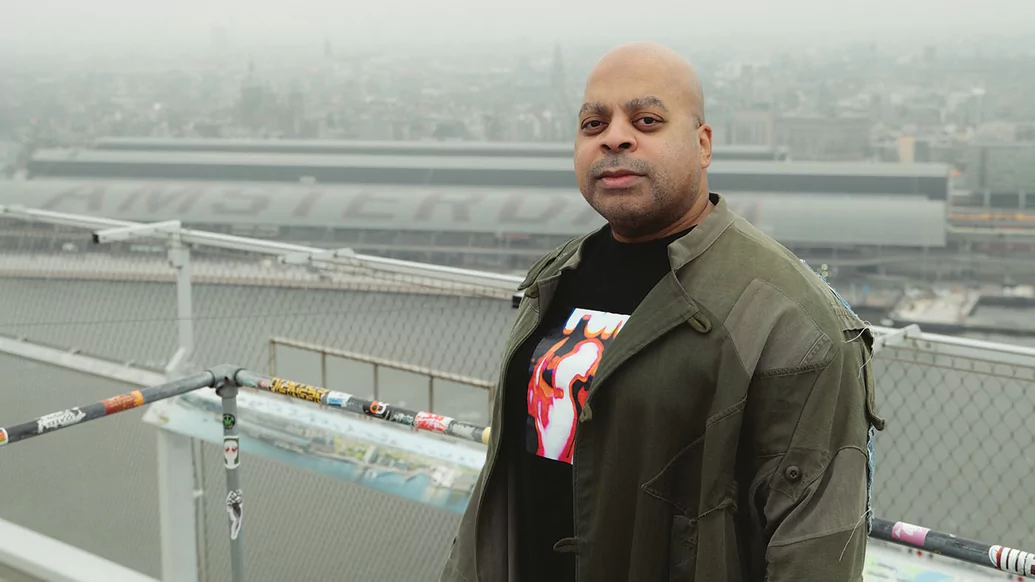
Bone’s own output walks his talk, from the outset channelling his raw emotions into politicised dancefloor funk. Subject Detroit launched in 1998 with the prophetically titled ‘Unleashed’ EP, the track ‘Black Lives’ delivering a portrait of “Black lives, poverty, aspiration” over a cascade of tribal- sounding drums. ‘Ship Life’ in 2004 referenced the bringing over of African slaves to America, the events that also inspired Drexciya’s underwater world, Bone channelling their spirit into ghostly grooves.
The same year ‘Cause Of Action’ sampled a broadcast from South African anti-apartheid station Radio Freedom, the announcement, “There is only one path and one path only, it is the path of relentless struggle, it is the path of sacrifice”, chiming with Bone’s own meticulous approach in a world where people are increasingly looking for shortcuts to fame. The rise of the DJ influencer is something he has been vocal about for some time, in 2008 taking to the mic on the hypnotic ‘Circus World’ with lyrics inspired by “all these clown-ass DJs I thought would just get up there and cheerlead”. “I paid tonnes of dues,” says Bone of his beginnings.
Starting to DJ in the late ’80s, his style was influenced by Detroit’s most well-known figures. Jeff Mills’ radio sets as The Wizard provided a template for mixing that seemed as magical as the name implied. “I didn’t know that he would do a lot of these mixes on a four-track and then edit it all together in a special way to make it unreal,” says Bone now, adding it inspired him to push what he was doing to the limit. Trips to the Music Institute, meanwhile, exposed him to Detroit techno’s founders. But it was two lesser-known figures who were his DJ mentors: Sneaky Pete and Ron E.
“Sneaky Pete was this dude who lived in Southfield and was a barber,” explains Eric. “It was funny, because he’s a white dude but he cut Black hair better than most barbers in Detroit.” With turntables set up where he cut hair for people to DJ, he eventually started showing Bone the ropes. Ron E, meanwhile, was one of his cousin’s friends from the University of Michigan. A mobile DJ, he taught Bone tricks such as playing doubles. In return, Eric would help him carry his gear to set it up at the university. At one party, Ron E pretended he had to go get a bit of gear, leaving a nervous Bone, who till then had only DJed in his own basement, in charge of the decks. When he reappeared an hour later, Ron E announced it was Bone’s first gig, letting him play another two hours. “I was so nervous,” he recalls, “I think I picked the needle up on the wrong record!”
If those are “my guys”, there’s another left-field element to his DJ foundation: Miami Vice. “That and Blade Runner were the first two times I saw how visuals and music could match to the point where they make you feel different from watching a regular show or a movie,” he says, noting it wasn’t just the Jan Hammer soundtrack but how all the music was synched to the atmosphere of each scene. “So when I started to DJ, I never DJed according to genre. I DJed according to mood.”
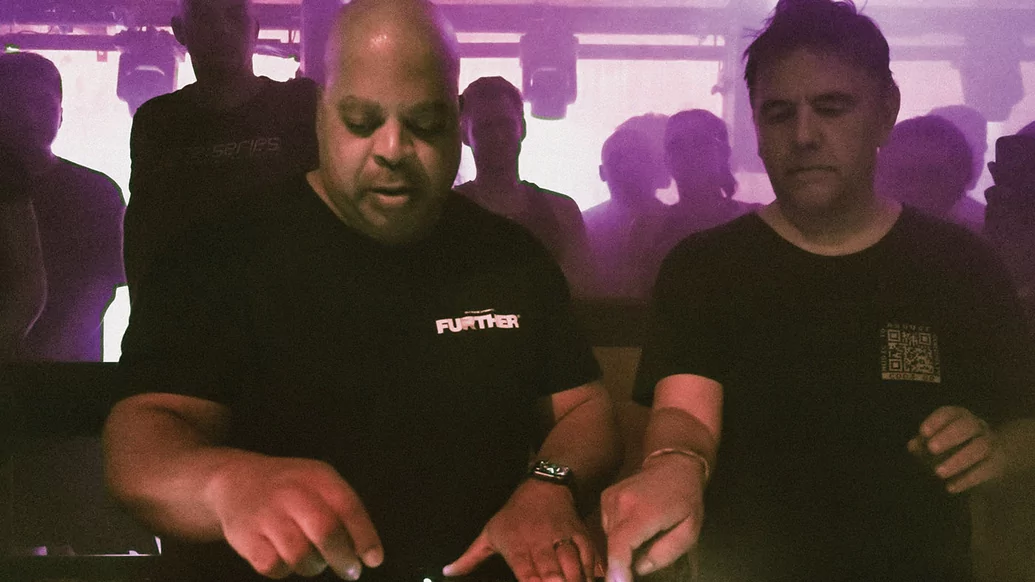
By the early ’90s, Bone was holding down five residences a week: “I started off playing at The Shelter in Detroit, I would play at Motor in Hamtramck, Lush, places in Pontiac, Industry, Velvet Lounge.” He was at a point where Mike was starting to give him white labels from UR, as well as labels like Red Planet, 430 West, Direct Beat and Metroplex, thanks to running distributor Submerge. But he still had one foot in the mobile DJ world, often having to bring his own set-up — or risk coping with broken speakers and busted mixers, something that taught him how to deal with any “battle conditions”.
Laurent Garnier changed everything. Over in Detroit around 1995 to play a birthday party at one of Bone’s residencies, he asked to meet Eric afterwards, both impressed that the other had played flawlessly despite blown monitors. At dinner, he told Eric: “‘You need to come to Europe and play’. I was like, ‘I’d love to’. And he goes, ‘No, you don’t understand, you can do this for a living’.”
Laurent returned to visit Detroit another time before he made good on his promised invitation, insisting Bone play the same warehouse party. When they ended up playing at the same time, Laurent got Stacey Pullen to cover an hour of his own set so he could dance to Bone’s. The night ended with a girl getting shot, Bone reassuring Laurent: “It’s all right, this is Detroit. Shit happens”. What sounds less Detroit is that the offer to play arrived by fax. “That was one of my first investments,” Eric chuckles. “The fax was the epitome of business then.” Whereas a few Detroit DJs returning from Europe had downplayed their receptions, not wanting anyone else to follow in their footsteps, from the outset Laurent introduced Bone to the industry and press, picking him up in Paris before he played the city’s celebrated Rex Club and giving him a personal tour.
“That’s why I say Laurent is almost single-handedly responsible for my career outside of Detroit.” He’s also responsible, Eric grins, for the end of his healthy eating days. Arriving in France trim and fitness obsessed, his requests for plain chicken salad were turned down by Laurent, who insisted on plying him with rich French classics from Michelin-starred restaurants.
Headlining to a packed Rex Club, Thomas Bangalter and Manu Le Malin were among those there to meet Bone before he played. It was a revelation. “I came back to Detroit and quit my job,” he says, having been bartending and studying architecture and industrial engineering. He loved school, but “I’d just made a whole month’s worth [of money] in one weekend.”
It wasn’t like the hustle stopped. Pre-social media, “All my bookings were word of mouth. People would hear me, or Laurent or someone else would say, ‘Bone, oh man...’” Then in 2000, after being put in touch with UK tech-house label Eukatech on a trip to London, he put out the mix compilation ‘Subject:Detroit Volume 2’. Blending hard Detroit techno, including some of Bone’s own productions, with European leaders such as Garnier and Deetron, the first contemporaneous Discogs review sums up its impact: “This is one of the best techno mix CDs out there. I had never heard of DJ Bone before listening to this CD but I am now forever a fan of this great DJ/producer.”
“I think that’s what really launched gigs for me,” he says, explaining how putting it together just involved “contacting my homies in Detroit”. Packing in UR’s iconic ‘Final Frontier’ alongside a “super rare” Jeff Mills track and unreleased Scan 7, he didn’t realise till afterwards that “a lot of these people just didn’t licence tracks. I didn’t know at the time, because they’re my friends.”
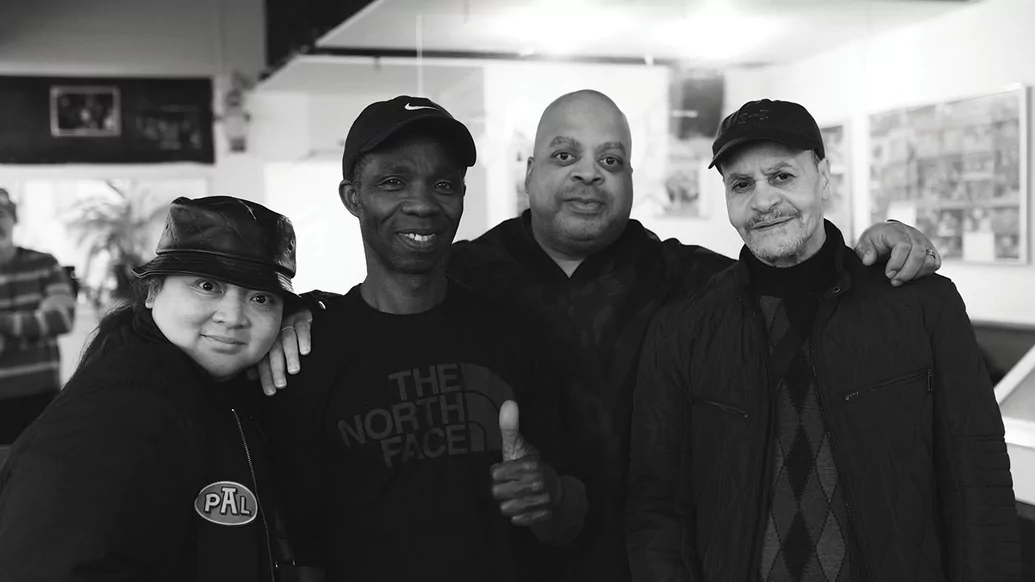
He met Ahnne, who is Filipino but moved to LA in 1994, at a music conference in Las Vegas. “She was there to talk about accounting, I was there talking about DJing. We kept in touch.” When their relationship grew, she was the reason Bone left Detroit and moved to LA, rather than her relocating with the two children she already had. “Detroit is a whole different kind of dangerous,” he explains succinctly.
This personal flourishing fed into Bone’s professional growth. “When you leave a situation or a certain bubble, you see it differently,” he says, talking about what sound like some of Detroit’s challenges: the city’s failure to invest properly in regeneration, its internal rivalries, the limited expectations of how you should behave, even from city officials. It sounds like he’s been criticised for leaving, but he’s done more in Detroit, he says, than most people ever will. And despite having left, he’s still representing: “I’m up there playing Detroit techno at these high-profile events, where it would be easy for me to play like everybody else and charge three times what I charge.
“I’m never in doubt of myself, my skills, my abilities,” he says of his DJing and production. Yet he still has “a lot of Detroit in me that’s just set in my ways, especially when it comes to my belief system”. Ahnne has helped him overcome this.
This cover story, he says, may not have happened without her. And it was Ahnne who persuaded Bone to finally do a Boiler Room, his idea of it being “someone always trying to ham up for the camera” at odds with his DJ style, barely looking up as he concentrates on a constant flurry of cuts, echoes, fader stutters and blends. When he did finally stream from Dekmantel in 2017, one of the Boiler Room organisers said it was him who’d inspired them to create Boiler Room. In the mid-2000s, Bone had recorded a series of Attack mixes, one of which he filmed, its grainy early GoPro footage capturing Bone alone in his studio mixing slamming techno records across three decks. “He told me they watched that video over and over.”
Homeless Homies arose from Eric and Ahnne asking: “How much money does anyone really need?” Talking to the many homeless people in Detroit while he was still a local DJ, Eric found out it was often just one thing that had changed the course of their lives, “either losing a job or getting injured”. He and Ahnne suggest always having six months rent saved but, recognising this isn’t a luxury everyone can afford, Homeless Homies started as an emergency fund, fed by the profit from Subject Detroit. In more recent years, the charity has raised money through events too, putting on parties at Shelter and Radion in Amsterdam. This has funded an art project at De Regenboog and bought mattresses for a shelter called Stoelenproject.
Still providing aid in LA and Detroit (where Bone says they tried to open their own shelter but were essentially stopped by city interference), it’s given him a “purpose” to channel his growing popularity for a wider good. “Any city that’s taking care of me, I want to take care of it.”
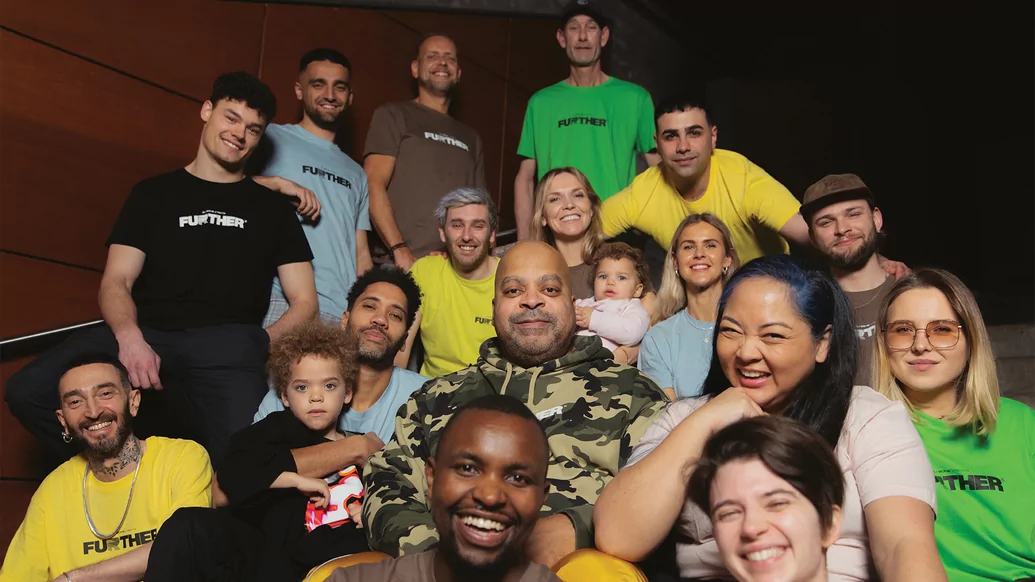
“I wanted to make sure that this music wouldn’t be bound to just Detroit techno. Whenever you say FURTHER, it doesn’t stop. It never stops.”
FURTHER and Radion seem to be doing just that. Booking Laurent last summer was an emotional full-circle moment. This time, it was Bone picking his French compadre up. The pair talked “about our history, about what we’ve accomplished, about our plans and our retirement. I told him, ‘Without you this doesn’t happen’.”
Ahnne is pivotal in executing bookings, and 26th April’s Kingsnight party touches down with a hefty draw featuring Detroit In Effect, DJ Stingray 313 and Moodymann alongside Bone playing both techno, then house under his Doc Ciroc alias. In the summer, he joins Defected’s Croatia-based festival as Doc Ciroc, playing alongside Luke Solomon, Floorplan, Honey Dijon and Jeff Mills.
It’s an indication of his current popularity, holding his own even under a lesser-known moniker. This respect and recognition was aided by last year’s back-to-back tour with Goldie, the pair setting off to play clubs such as fabric with no plan other than at some point to touch on each other’s respective genre. It came out of the blue, says Bone, Goldie’s agent mentioning it and he and Ahnne suspecting it was idle chat until Goldie called: “He said, ‘Man, techno’s shit. We need to do something and shake things up.’” Showing us videos of various parties, where they ran the gamut from DJ Kool to Metalheadz, the camaraderie ran deep.
There’s a sense, then, of having outgrown something. “I’m gonna stop Subject Detroit,” Bone states, making an official announcement. “I don’t want to just be known as a Detroit DJ,” he says, adding it will always be his roots. “It’ll never leave me.” But he wants to move into making something that’s “more of a futuristic, universal, experimental-type thing,” citing it’ll have influences from hip-hop and maybe even the ’80s music he grew up on.
It’s a fresh start, and perhaps owes something to the passing of his parents over the course of a few years. When his mum died first, he felt a creative urge, he says, writing 2015 track ‘M.O.M.’ and releasing it under a new Differ-Ent alias. But when his dad died three years ago, he hardly made any music. Eric calls him “the strongest person I’ve ever known in my life”. When he used to practise DJing for hours in his dad’s basement, he’d smell his cigarette smoke as he sat on the stairs listening silently. Then the first time he played DEMF (now called Movement): “He was there. He was so proud, he had his fist up in the air.
“Then I started creating again and I wanted to make sure that this music wouldn’t be bound to just Detroit techno,” he says. FURTHER is the all-encompassing banner for his new music. “Whenever you say FURTHER, it doesn’t stop,” he explains, underlining a sense of boundless possibility. “It never stops.” To prove it, he’s currently finishing two albums: one to close Subject Detroit, another to start FURTHER, the next stage of his on-going journey.
It doesn’t sound remotely close, but what were the retirement plans he discussed with Laurent, we wonder? “I have this running joke that I call Amsterdam my Vegas,” Eric chuckles, talking about the kind of nightly residencies you get from huge acts like Celine Dion and Britney Spears. One day, perhaps, you’ll have to come to Amsterdam to hear Bone play. But for now, he’s pushing himself further than ever before.
The first single from DJ Bone’s upcoming LP, ‘FURTHER’, is available to stream now.

